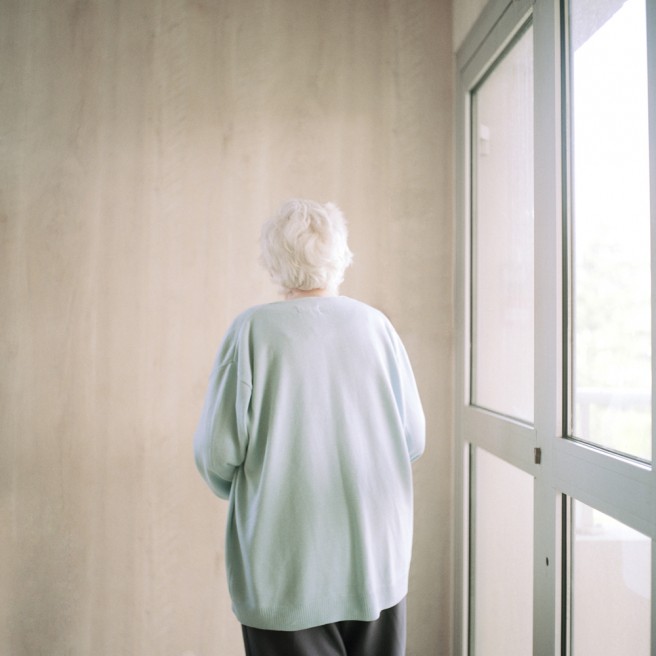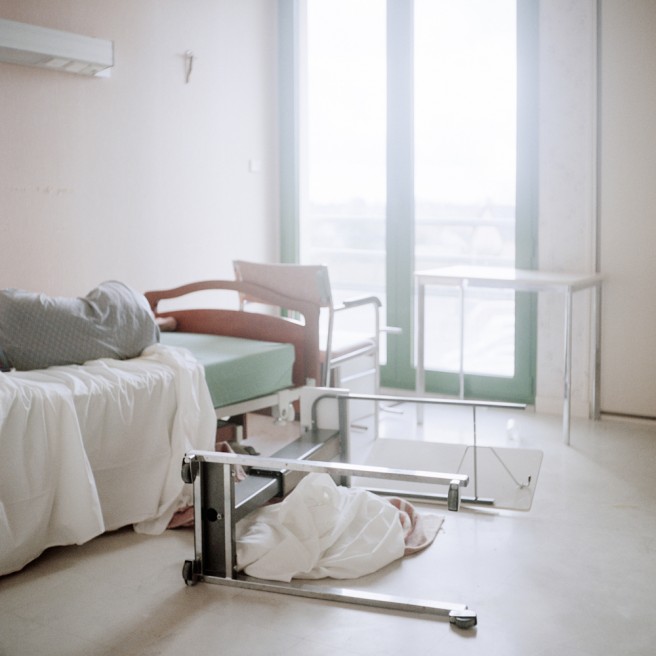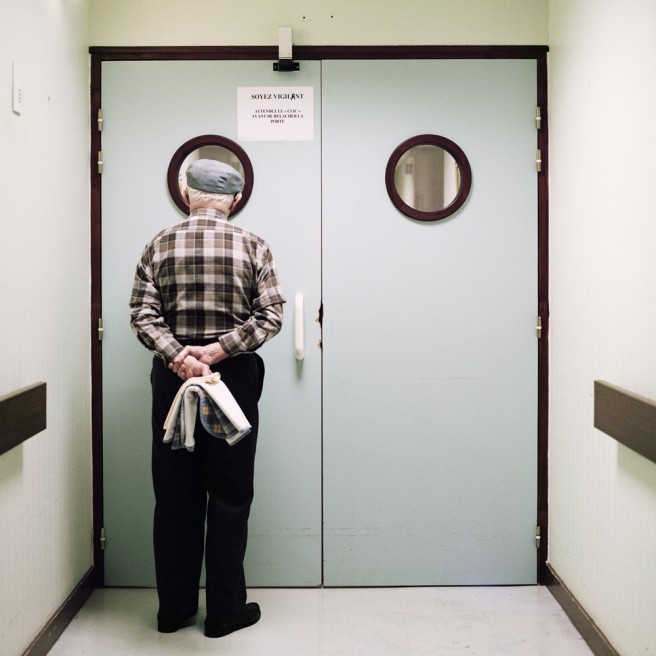The proportion of elderly people in western society is constantly rising. The number of individuals above the age of 60 is expected to double over the next 25 years. Some 24 million people worldwide suffer from dementia and about half of these people have Alzheimer's disease. The growing number of senior citizens is raising the incidence of this disease in our society and scientists predict that the number will have tripled by 2050.
While investigating politics of ageing in modern society, I have for three years photographed life within a geriatric hospital in the northwest of France. The « Protected Unit » is home to residents with Alzheimer’s disease. Due to tendencies to wander about and potentially get lost, they are confined within the ward. A locked door separates the occupants from the rest of the hospital. Ruled according to the “principle of precaution”, residents in the unit can circulate freely within the secured area but as a result to a lack of activities and a limited number of carers in the ward, the locked door becomes the centre of attention for the occupants who question the obstruction and attempt to force it open. The daily struggle with the door, damaged due to repeated attempts to pick the lock, can last for hours.
This series documents the day-to-day challenges in the often ignored geriatric sector, but also the wider implications of the growing populations of elderly in modern society as an increasing life span has coincided with the breakdown of the family unit. These aspects have caused a growing disregard for the elderly, swept aside by a commercially driven, youth-obsessed culture. As growing old and being dependent is more taboo than ever, the geriatric institution hides our elders away, safely out of sight.
While giving a vision about what living with Alzheimer’s in an institution might mean, I want to motivate people to think about current care policies and the effects it can have on somebody’s life. This project gives a rare insight to a part of the modern geriatric institution. It attempts to create a discussion about our institutionalized, modern way of living as well as the use of confinement as an aspect of care.




































